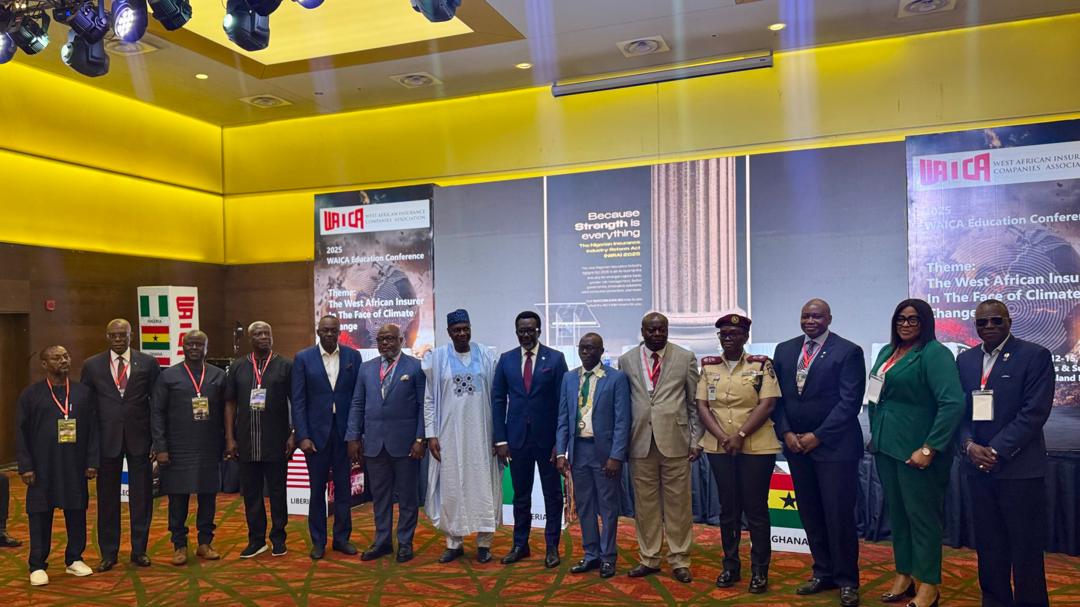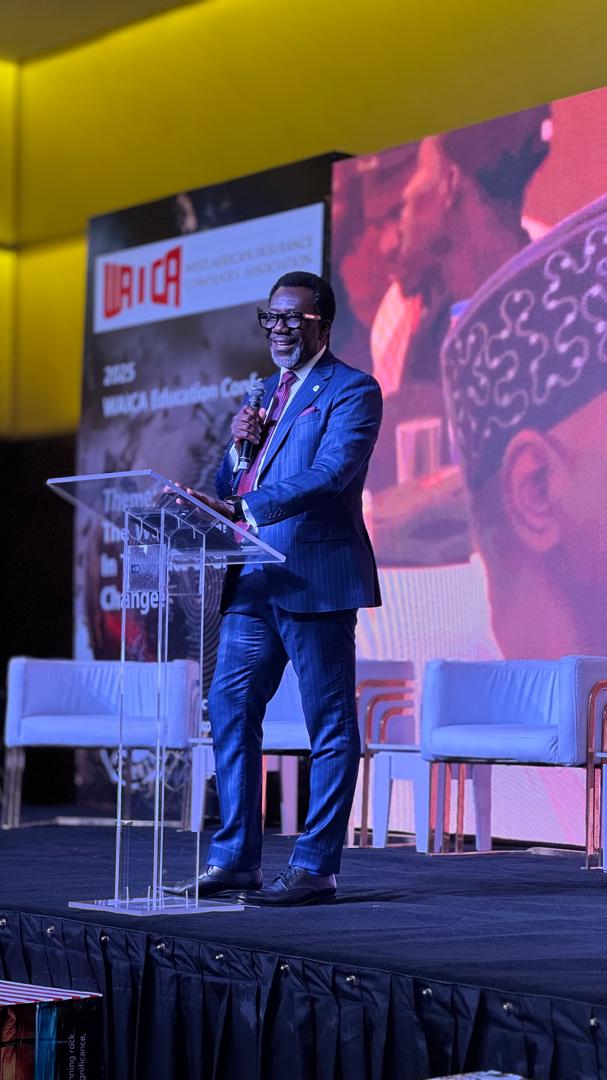Listeners:
Top listeners:
-
play_arrow
104.9FM Best rock music demo
-
play_arrow
Demo Radio Nr.1 For New Music And All The Hits!
-
play_arrow
Demo Radio Techno Top Music Radio
-
 play_arrow
play_arrow
Police Commissioner Launches Weapon and Riot Control Training for FCT Officers Democracy Radio

By Oluwakemi Kindness

Nigeria is taking the lead in reshaping how West Africa uses insurance to confront the growing threat of climate change.
At the opening of the 2025 West African Insurance Companies Association (WAICA) Conference on Monday in Lagos, the Commissioner for Insurance, Olusegun Ayo Omosehin, urged insurers across the region to move beyond profit and policy and become key players in sustainable development.
This year’s conference theme “The West African Insurer in the Face of Climate Change” captures a growing sense of urgency across the region.
“Climate change is rewriting the narrative of our region,” Omosehin said.
“It is testing the strength of our economies, the endurance of our communities, and the responsiveness of our institutions. Insurance must evolve from a transactional service to a strategic enabler of development.”
At the center of Nigeria’s strategy is the Nigerian Insurance Industry Reform Act (NIIRA) 2025, a sweeping new law aimed at strengthening the industry and positioning it to handle climate-related shocks.
Key reforms under NIIRA 2025 include:
*A stronger capital base for insurance companies
*Expansion of compulsory insurance to cover agriculture and environmental risks
*Integration of insurance into public-private partnerships for infrastructure and climate resilience
*Stronger consumer protection and improved public confidence
Omosehin described the reforms as “foundational to Nigeria’s national preparedness and long-term sustainability.”

Extreme weather events are hitting the region harder each year.
In 2024, flooding affected over 7.5 million people across 16 West African countries.
Nigeria alone accounted for 1.3 million displaced persons, 3,800 homes destroyed, and 5,300 hectares of farmland submerged in 2025.
“These are not just statistics,” Omosehin warned. “They are stories of disruption, loss, and delayed development.”
The Nigerian insurance chief urged West African insurers to work together in closing the climate finance gap—by sharing data, pooling risks, and expanding coverage to the most vulnerable.
He called for: Development of parametric and micro-insurance products suited to local realities
*Greater investment in technology and climate data
*Regional risk pools to share burdens and resources
*Broader financial inclusion to reach farmers, traders, and small businesses.
“Rain does not fall only on one roof,” Omosehin said. “Climate change does not respect borders—our response must be collective.”
The National Insurance Commission (NAICOM) reaffirmed its commitment to policies that promote collaboration among regulators, insurers, and development partners.
Omosehin said building climate resilience will require “a unified approach, one that blends sound regulation, market innovation, and strategic partnerships.”
As the conference concluded, Lagos — Nigeria’s economic hub — stood as a symbol of both vulnerability and opportunity.
For Omosehin, this moment represents more than policy reform; it’s a turning point for how insurance can power a sustainable and secure future for millions across West Africa.
Written by: Democracy Radio
#DemocracyRadio #Insurance #NAICOM #WAICA2025 Nigeria
Similar posts
Copyright Democracy Radio -2024


